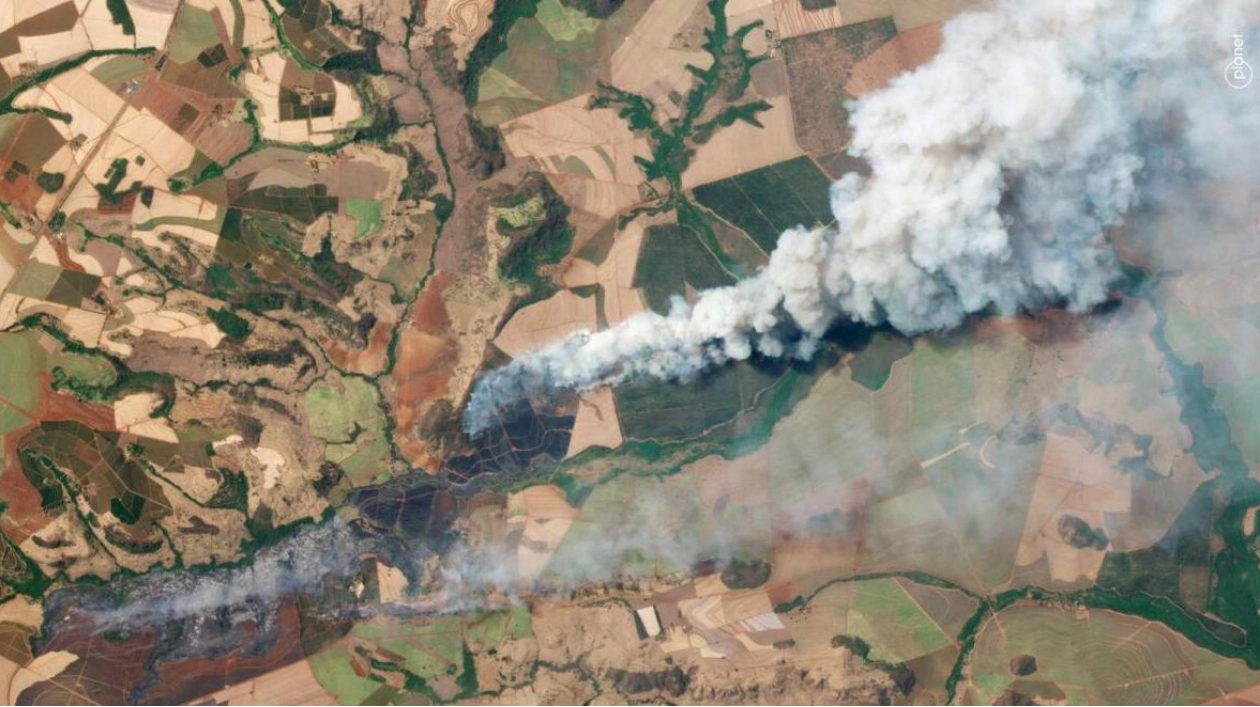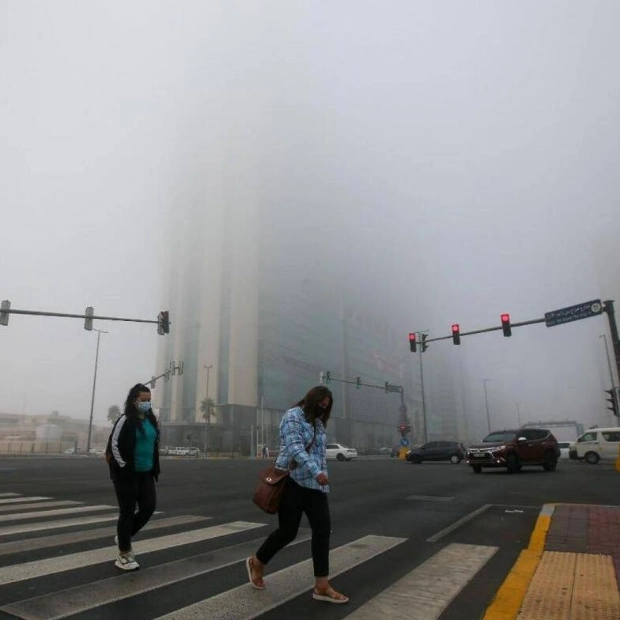Four men were arrested on suspicion of setting fires that destroyed thousands of hectares of sugarcane plantations in Brazil's northern Sao Paulo state, according to the government on Monday. The fires rapidly spread through dry fields during the peak of the country's dry season, where no rain has fallen for months. Smoke from the fires enveloped nearby cities, leading to restrictions on outdoor activities and disruptions to highways and airport operations due to poor visibility.
Sao Paulo Governor Tarcisio de Freitas explained at a press conference that an explosive combination of high temperatures, strong winds, and low humidity in recent days made any ignition source potentially dangerous. He reported that three suspects were arrested in the region with containers of gasoline for starting fires, and a fourth man was apprehended on Monday while setting fire to grass. Federal police are investigating the fires on suspicion of arson.
This year, dry weather has increased the frequency of wildfires across Brazil, including in the Amazon region. Environmental experts attribute the doubling of fire incidents this season to higher temperatures caused by climate change and widespread deforestation. In the Xingu Park, Chief Megaron Txucarramae urgently requested assistance to control a fire in Brazil's most famous Indigenous reservation, pleading for firefighters and water-dropping planes on television.
Sao Paulo's governor stated that no new fires were burning in the sugarcane fields, but dozens of towns remained on high alert for further blazes. In Ribeirao Preto, a city in the most affected region in the west of Sao Paulo state, school classes were canceled on Monday due to the smoky atmosphere. Freitas estimated the damage to farm crops from the fires at over 1 billion reais ($182 million). Sao Paulo is the largest sugar-producing state in Brazil, which is the world's top producer and exporter of the sweetener. Brazil's largest sugar group, Raizen SA, announced the resumption of operations at its Santa Elisa mill on Sunday, after evacuating the plant due to the proximity of fires.






